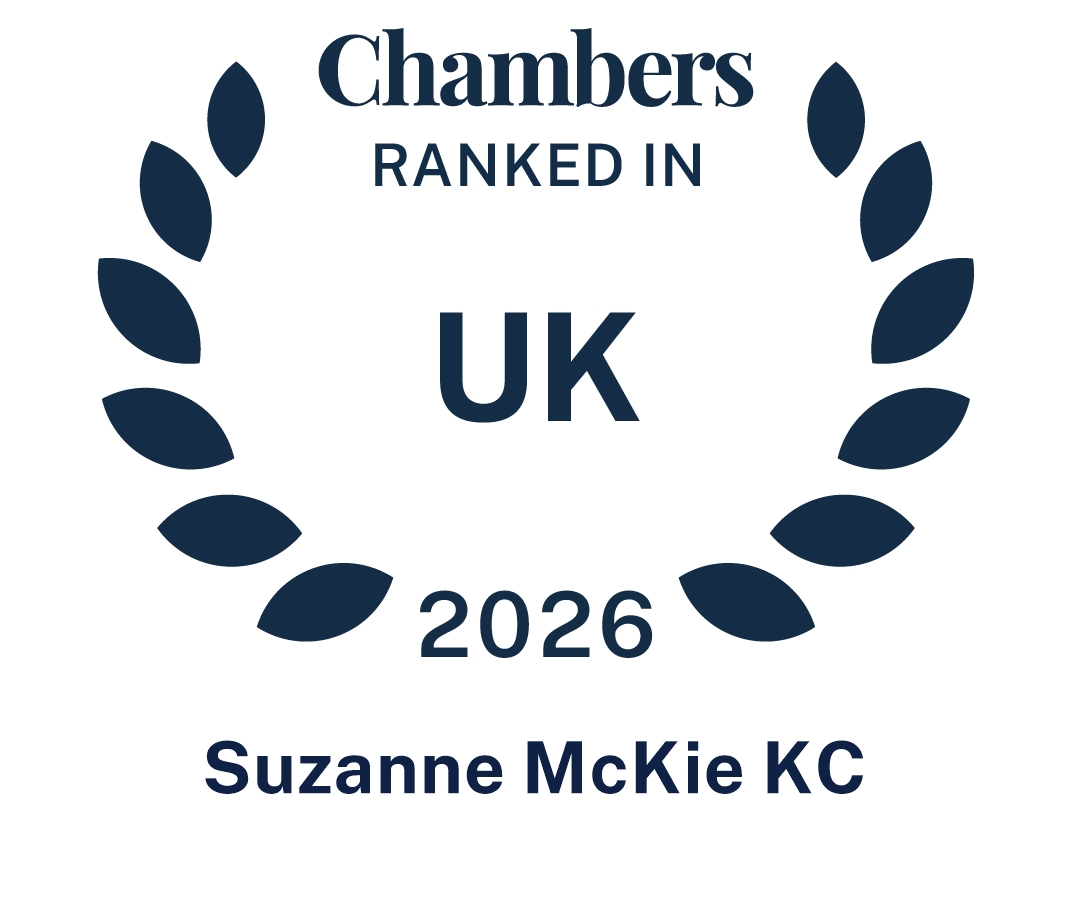
27 February 2023
|Insight
Litigation, Disclosure and ADR Procedure
Privilege in cross-border employment disputes
Legal privilege entitles a party to withhold evidence that it may otherwise have to disclose. The courts have determined that privilege is a fundamental right “on which the administration of justice as a whole rests”: R v Derby Magistrate’s Court, ex p B [1996] 1 AC 487. As privilege is not merely a rule of evidence, parties can assert privilege over certain communications and/or documents before litigation is underfoot or contemplated.
This post explores how the rules of privilege apply to cross-border employment disputes, involving (e.g.) corporate clients with offices in multiple jurisdictions. Where communications and/or documents are made in a foreign jurisdiction but the legal advice is being relied on in England and Wales, or the legal proceedings are taking place in England and Wales, which jurisdiction’s law on privilege prevails?
In this post, we focus on two types of legal privilege:
(i) Legal advice privilege: this protects a client’s communications with their lawyer, where such communications are confidential and for the dominant purpose of seeking or receiving legal advice. Legal advice privilege applies to communications whether litigation is underfoot, pending or contemplated.
(ii) Litigation privilege: this attaches to communications and documents which are for the dominant purpose of litigation, or for litigation which is reasonably contemplated. Importantly, litigation privilege applies to communications that involve third parties – it is broader than legal advice privilege in this respect.
When English and US conceptions of privilege collide
US federal law (“US law”) and the law of England and Wales (“English law”) diverge in material ways in respect of legal advice privilege. One such difference concerns the UK’s restrictive approach to recognising privilege where staff members provide information to in-house or external lawyers. Two facets of Three Rivers District Council and others v Governor and Company of the Bank of England (No. 5) [2003] EWHC 2565 (“Three Rivers”) are important for present purposes: (1) under English law, the client group is restricted to those employees authorised to seek and receive legal advice from the lawyer, and (2) legal advice privilege does not extend to information provided by employees and ex-employees to or for the purpose of being placed before a lawyer.
By contrast, US attorney-client privilege covers the situation where an authorised employee shares information to in-house or external lawyers. Interview notes are therefore typically privileged. This, in any event, was the ‘working assumption’ in RBS Rights Issue Litigation [2016] EWHC 3161 (Ch) (see paras 139 and 196 of that judgment), as discussed in more detail below.
RBS Rights Issue Litigation
The divergence between English and US conceptions of legal advice privilege came to a head in RBS Rights Issue Litigation. RBS shareholders brought proceedings in the UK for substantial investment losses. Before the High Court, the claimants sought disclosure of two sets of documents:
(i) Records of interviews conducted on or behalf of RBS with employees and former employees in response to two US Securities and Exchange Commission subpoenas relating to RBS’s sub-prime exposure (‘Project Mortar’).
(ii) Records of interviews conducted on behalf of RBS as part of its investigation into allegations concerning RBS Greenwich Capital (‘the Hong Investigation’).
A partner at Wilmer Hale described the documents’ connection to the US in a witness statement in the following terms:
“Wilmer Hale’s Washington DC office was instructed to advise RBS (including in the UK and in Connecticut) in respect of the first of these two investigations – Project Mortar.
… in order to collect the factual information necessary to advise RBS, interviews were conducted with certain current and former RBS employees. These interviews were carried out by Wilmer Hale in the US … and by Travers Smith (sometimes accompanied by a member of Wilmer Hale’s team) and RBS Group Secretariat in the UK. The interviews carried out by Travers Smith and RBS Group Secretariat were conducted on the instructions and under the supervision of Wilmer Hale. I note for completeness that Dickstein Shapiro conducted the interview of Victor Hong in New York and that the prior internal review was conducted by RBS’s US legal team in Connecticut.”
The Three Rivers (No 5) Point
RBS argued that the documents were not disclosable on the basis that legal advice privilege applied and/or that the documents were lawyers’ privileged working papers (here, we focus on legal advice privilege). Litigation privilege was not relied on.
RBS did not argue that the interviewees were themselves seeking legal advice. Rather, they argued that these employees/former employees were authorised to communicate factual information to RBS’s legal advisers for the purpose of enabling the corporation to seek or receive legal advice. RBS submitted that Three Rivers did not lay down a general definition of ‘client’ which could be applied to all corporate settings. RBS argued that it was no part of the test that the authorised employee had to communicate instructions rather than information in order to be considered a client. These arguments were rejected. Mr Justice Hildyard stated, at para 93, that:
“In summary, I consider and hold that the Interview Notes, albeit that they record direct communications with RBS’s lawyers, comprise information gathering from employees or former employees preparatory to and for the purpose of enabling RBS, through its directors or other persons authorised to do so on its behalf, to seek and receive legal advice … The individuals interviewed were providers of information as employees and not clients: and the Interview Notes were not communications between client and legal adviser. I do not consider that any sufficient basis has been demonstrated for not applying Three Rivers (No 5).”
The Applicable Law Point
RBS also argued that the governing law should be determined by reference to the jurisdiction that could claim the ‘closest connection’ to the documents and/or communications over which privilege was said to apply. This would be advantageous for RBS as the communications were almost certainly privileged under US law. However, here RBS had an uphill battle. They had to argue that lex fori (the law of the forum) should be displaced. This is a long-established rule whereby the law of the jurisdiction in which litigation commences is applicable. The litigation in RBS Rights Issue Litigation had commenced in the courts of England and Wales and so the starting point is that English law should apply.
RBS contended that previous authorities which had applied lex fori, such as Lawrence v Campbell [1859] 4 Drew 485, should not be followed. Lawrence concerned a claim for the return of a sum of money which was allegedly held on trust, which had been transferred by the defendant to a Scottish firm of solicitors practising in London (though they were not admitted as English solicitors). The claimant sought disclosure of correspondence between the defendant and the Scottish solicitors, which he said would prove that the money was held on trust for him. The claimant sought to rely on Scottish law, which permits disclosure where the communications contain “the res gestae of the litigation”. The court rejected that submission and applied English law, such that the communications were privileged. Sir Richard Kindersley V.-C. stated that “… sitting in an English Court, I can only apply the English rule as to privilege …”.
RBS attempted to distinguish Lawrence because, in that instance, Scottish law would have required the defendant to disclose letters in the proceedings, while English law enabled the defendant to assert privilege over this correspondence. Mr Justice Hildyard accepted that this was a point of distinction (given that, here, US law would prevent disclosure) but said that it was ultimately question begging. He asked rhetorically, “[is there] any less rationale for applying the lex fori where the privilege would not be available under English law; or, put the other way round, whether there is any logic for the application of the foreign privilege rule when it protects documents from disclosure, but not when it requires disclosure” (para 150). The level of protection offered by a foreign jurisdiction is therefore not a relevant question when determining the lex fori. Mr Justice Hildyard also gave short shrift to RBS’ arguments that (i) Lawrence should be distinguished because the Scottish solicitor practised in London (cf Project Mortar and the Hong Investigation which had a stronger connection to the US), and (ii) that privilege had evolved from an evidential principle to a substantive right since Lawrence was decided in the 19th century.
When considering the policy-based considerations which militated against RBS’s position, Mr Justice Hildyard referred to Bourns Inc v Raychem Corp [1999] 3 All ER 154 in which Aldous LJ observed that, if lex fori did not apply, a court “would need to be informed as to whether privilege could be claimed in all the countries of the world” (para 159). This would be particularly onerous if the documents or communications were made in various countries. Aldous LJ held that it was irrelevant that, under foreign law, a document was not privileged or that under foreign law the privilege that existed was deemed to have been waived. In either event, he held that English law should apply.
In the RBS case, Mr Justice Hildyard held that adopting another jurisdiction’s rules on privilege would disrupt the public policy on which the English rules of privilege rested. A move away from lex fori to the “most significant relationship” test (as applied in the US) would be likely to (a) require experts at the interlocutory stage to determine whether foreign law applies, and (b) increase legal uncertainty, particularly in cases which involve multiple jurisdictions. For these reasons, it was irrelevant that RBS could assert privilege over the interview records under US law.
Comment
One understands why this conclusion was reached. However, the court perhaps underexplored the arguments which pointed in the opposite direction in relation to legal certainty. Allowing the law of the forum to prevail results in multinational companies needing to consider privilege in various jurisdictions in which legal proceedings may be brought. Where employees are based in multiple jurisdictions, decision-makers (e.g., those making operational decisions) cannot assume that the law on privilege in their geographical location will prevail. This, in itself, is likely to make such decisions more costly and uncertain. Employers will want to seek legal advice as to the jurisdiction in which an employee may bring proceedings. This would enable the employer to ask questions as to the extent of legal advice privilege that applies to their communications with their legal representatives. On the other hand, if litigation is already in reasonable contemplation, then litigation privilege could be relied upon, provided that the communications are for the dominant purpose of conducting litigation.
So far we have discussed the situation where legal proceedings are commenced in England and Wales, such that the principle of lex fori arises and displaces a foreign jurisdiction’s laws on privilege. However, prior to the commencement of proceedings in England and Wales, lex fori does not apply. This opens an avenue for a corporate to rely on a foreign jurisdiction’s law on privilege prior to proceedings being brought. For example, an employee may want to see a copy of an internal investigation report arising from an investigation into his/her grievance. Such a report is unlikely to attract legal advice privilege in the UK (see University of Dundee v Chakraborty [2022] EAT 150) and, at this stage, litigation may not be underfoot or reasonably contemplated so as to engage litigation privilege. But let us imagine that this report was produced in the US by the company’s in-house lawyers. We are not experts on the US law of privilege, but on the basis of Mr Justice Hildyard’s working assumption (that the US protects the process of information gathering and sharing within a corporation), it would appear to be perfectly proper for the company to assert privilege in respect of such an investigation report in reliance on US law.
What to take away
It should not be assumed that the laws of a country in which communications or documents are made will be applied to determine if legal privilege applies to them. Therefore, in countries such as the US, where there is a more generous interpretation in respect of who is a ‘client’ for the purpose of attorney-client privilege, it would be remiss to discount the chance that litigation will be commenced in another jurisdiction that has a more restrictive stance on legal advice privilege.
For example, in a cross-border employment dispute, where a person was employed by a US company, but dismissed while working in the UK, the Employment Tribunal may accept jurisdiction to hear the former employee’s claim for unfair dismissal/discrimination etc, and so apply the laws of England and Wales regarding privilege. Assuming litigation privilege does not apply as an alternative, if non-legal personnel in the New York office had communications with their lawyers, but were only providing information to them, then those communications may be disclosed and inspected in the UK. Equally, English law is less likely than US law to allow legal advice privilege to communications where the in-house lawyer is not acting as a lawyer but in his/her capacity as a manager.
It is therefore important to consider any foreign jurisdictions that might be able to hear claims arising out of domestic decision-making. If another jurisdiction may have a sufficient interest to hear the claim, it is vital to seek advice on that jurisdiction’s laws on privilege, to guard against communications becoming disclosable, as happened in RBS Rights Issue Litigation.
© Farore Law Limited









